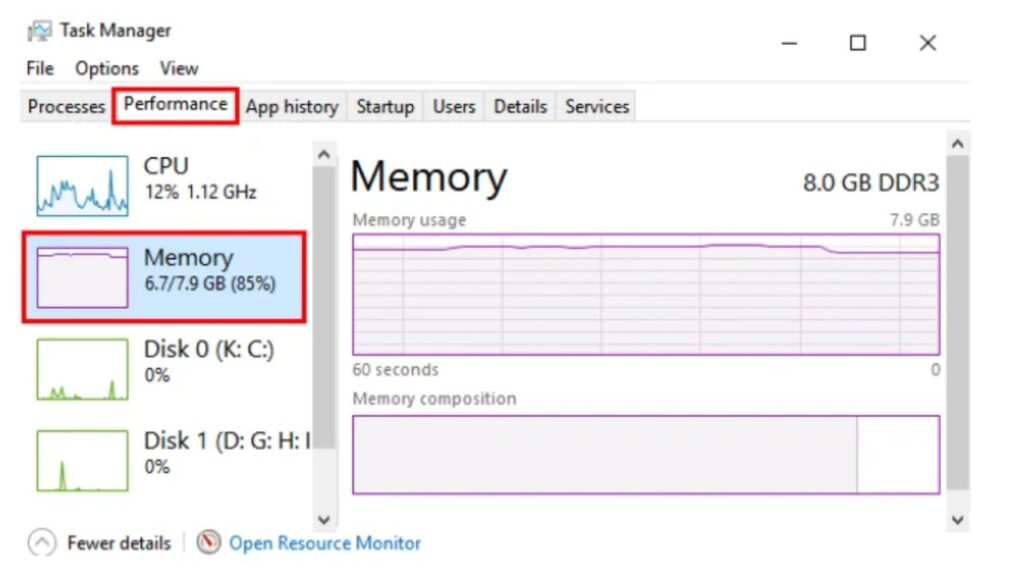In the dynamic world of gaming, the debate over RAM capacity has intensified, with enthusiasts weighing the pros and cons of 64GB versus 128GB configurations.
As game developers push the boundaries of graphics and realism, the need for robust system resources becomes more apparent.
This blog post aims to dissect the advantages and drawbacks of 128GB RAM or 64GB for gaming, helping you make an informed decision that aligns with your gaming aspirations.
The Basics of RAM in Gaming
Before diving into the intricacies of 64GB vs. 128GB, it’s crucial to understand the role of RAM in gaming. Random Access Memory serves as the temporary storage for data actively used by your computer.
In gaming, this includes loading textures, assets and ensuring smooth gameplay. Traditionally, the sweet spot for gamers has hovered around 16GB or 32GB of RAM.
However, as game demands escalate, higher capacities are gaining attention.
64GB RAM: Striking a Balance
The Sweet Spot for Most Gamers
For many gamers, 64GB might seem excessive, but it’s worth considering the evolving landscape of gaming. In high-end setups, especially for 4K gaming or resource-intensive AAA titles, 64GB ensures ample headroom.
It serves as a buffer against potential future advancements in gaming technology, providing a balance between performance and cost.
Multitasking and Beyond
Beyond gaming, 64GB of RAM shines in multitasking scenarios. If you’re a content creator, streamer, or someone who often juggles multiple resource-heavy applications simultaneously, the extra RAM can significantly enhance your overall computing experience.
Streaming Considerations
For gamers engaged in streaming, where the demand for system resources is intensified, 64GB can be a game-changer. The ability to smoothly run the game, streaming software, and other applications concurrently without sacrificing performance is a distinct advantage.
128GB RAM: Overkill or Future-Proofing?
Extreme Multitasking Power
For the gaming enthusiast deeply involved in professional workloads such as video editing, 3D rendering, or running virtual machines, 128GB of RAM unleashes unparalleled multitasking capabilities.
While not strictly necessary for gaming alone, it ensures seamless transitions between resource-intensive applications.
Future-Proofing on Steroids
The debate around future-proofing takes center stage with 128GB of RAM.
In a rapidly advancing technological landscape, having such a massive amount of RAM ensures your system is ready to tackle anything thrown its way for years to come. It’s a proactive investment in the longevity of your gaming rig.
Content Creation Dominance
Content creators dealing with large files, high-resolution textures, and intricate designs will find that 128GB of RAM accelerates rendering processes and streamlines creative workflows.
It’s not just about gaming but also about optimizing the entire content creation pipeline.
Performance Showdown: 64GB vs. 128GB
Testing the Waters
To understand the real-world impact, we delved into performance tests comparing 64GB and 128GB RAM configurations.
In 17 out of 32 tests, the 128GB setup surprisingly outperformed the 64GB counterpart. However, it’s crucial to note that the differences were generally negligible in most scenarios.
Realizing the Marginal Gains
While the performance advantage of 128GB was evident in specific tests, it’s essential to weigh these gains against the additional cost.
For the average gamer, the investment in 128GB might translate into something other than a proportional increase in gaming performance.
The Importance of Speed
Throughout our testing, we found that, for less demanding tasks, choosing RAM speed over sheer capacity can be more beneficial.
In scenarios where gaming is the primary focus and multitasking demands aren’t extreme, faster RAM might offer more tangible advantages.
Conclusion
In the eternal quest for the perfect gaming setup, the choice between 64GB and 128GB of RAM depends on your specific needs, budget, and the nature of your gaming habits.
For most gamers, 64GB strikes a compelling balance, offering future-proofing without breaking the bank. On the other hand, 128GB is a powerhouse, ideal for content creators and those engaged in heavy multitasking or professional workloads.
Ultimately, the decision between 64GB vs. 128GB RAM for gaming is a personal one. Consider your usage patterns, future aspirations, and budget constraints.
As technology continues to advance, finding the right balance ensures your gaming rig is optimized for the immersive experiences of tomorrow.
What’s your take on the 64GB vs. 128GB RAM debate? Feel free to share your thoughts in the comments below!
FAQ:
Will 128GB RAM help gaming?
In the immediate future, there’s no pressing need to go overboard with RAM capacity. Currently, the sweet spot for gaming lies around 16GB for high-end gaming setups and 8GB for more modest configurations.
Unless you’re heavily involved in streaming, where 32GB might be considered slightly excessive, there’s no imminent requirement for such substantial amounts of RAM.
Keep in mind that, for less demanding tasks, prioritizing speed over sheer capacity is the key. Choose wisely based on your specific needs, and remember that striking the right balance ensures optimal performance for your gaming or streaming endeavors.
Is 128GB RAM better than 64GB?
The findings are in, and here’s what they reveal: Across 32 tests, the performance comparison between utilizing four 32GB DDR4-3600 sticks for a total of 128GB of RAM versus employing two 32GB DDR4-3600 sticks for 64GB of RAM showed a noteworthy trend.
Surprisingly, in 17 out of these tests, the configuration with 128GB of RAM outperformed its 64GB counterpart. However, it’s crucial to note that the variance in performance was generally marginal, with differences being negligible in most cases.

